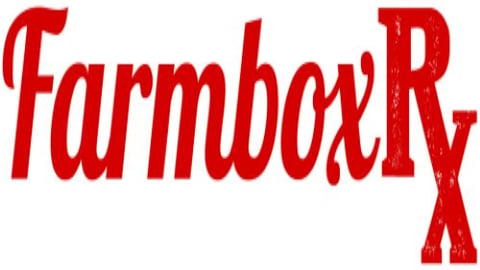EXCLUSIVE: What Is Food as Engagement?
Several years ago, as a single mom raising her child in a food desert and relying on food stamps, Ashley Tyrner knew there had to be a better way to access healthy foods. So, she thought outside of the box by thinking inside a box.
Tyrner founded Farmbox Direct in 2014 as a direct-to-consumer delivery service. It launched in the New York City area and expanded over the years to reach consumers around the U.S. who struggled with access to nutritious foods. In 2019, she expanded the business to include FarmboxRx, a service offering the delivery of food-as-medicine in partnership with Medicaid and Medicare programs. Today, the company reports that it has touched the lives of more than two million members and delivered more than 14 million pounds of fresh produce and healthy grocery items.
[Read more: "SoCal City Bans Junk Food From Supermarket Checkout Aisles"]
Earlier this year, as emergency allotments that were part of the Supplemental Nutrition Assistance Program (SNAP) lapsed, Tyrner again went in action mode, as FarmboxRx introduced Feed by FarmboxRx, an application-based program supporting consumers facing food insecurity. Those chosen for the program get six FarmboxRx boxes filled with fresh produce and panty staples delivered to their doorstep every month, along with educational magazines featuring tips on food preparation and health and wellness.
Progressive Grocer recently spoke with Tyrner about her mission of food as engagement. During National Hispanic Heritage this month, the Latina mother also emphasized the importance of having culturally relevant offerings as part of the food and health program.
Progressive Grocer: How did your experience as a young mom shape your vocation?
Ashely Tyrner: Thirteen years ago, I was pregnant on food stamps living in a rural food desert, where you had to drive 20 to 30 miles to a grocery store. That was before SNAP and EBT could be taken online. I always knew I wanted to face this problem and eradicate it. The reality is that it is very difficult for those with socioeconomic hardships to get out of that hardship, and that is where the idea began.
PG: How did your mission expand into health and wellness and how did you adapt?
AT: I think what happened was that the government finally brought forward the policy of ‘We need to get food to individuals who are food insecure and have chronic conditions.’ As consumers, people understand that food contributes to their outcomes. Also, as people have to be able to afford healthy food, they also have to know what to do with that healthy food.
PG: It’s a holistic approach, right?
AT: Outside of the obvious notion that if you eat healthier you are healthier, we entice individuals to get their flu shots, their mammogram. Eating healthy is just a component of health. I have always said that there is a common misconception that just because someone is low income means they don’t want to be healthy. Food engagement is really giving individuals the tools they need to take a self-efficacy journey in their health. We’ve been asked why this is successful for members who do other things to improve their health, and it’s because the box invokes a sense of self-worth and that leads to self-value. If you are given the tools to eat healthy, the more apt you are to, for example, get a diabetic eye exam so you don’t lose eyesight.
PG: In addition to supporting lower-income shoppers who have lost SNAP/EBT COVID-era benefits at a time of high inflation, what are some other ways that you have continued to offer solutions to today’s consumers?
AT: Our product offering includes culturally-relevant boxes, dry good boxes and tailored meals. Being that I’m Hispanic, my family eats differently than my husband’s family, who is not. You want to inspire individuals you are sending the box to, and we are proud of the culturally-relevant offerings we have. It also includes health literacy that comes in a box in a consumer’s language, whether that’s Spanish, Vietnamese, Russian or another language.
PG: How does Farmbox and FarmboxRx fill the gap in the marketplace, especially as some rural areas of the country grapple with food desert challenges?
AT: I love local food markets as much as the next person. But it’s not just grocery stores having problems in some areas – there are more pharmacy deserts, too. As sad as this is, the way to eradicate deserts is to utilize FedEx or UPS to deliver on a national scale. We deliver wherever FedEx and UPS go.
PG: And finally, what’s in your own Farmbox, in terms of products you like?
AT: Beans, in our dry good box. I make beans every week and it’s a whole family thing. I do think my family bean recipe has made it to the Farmbox recipe!






